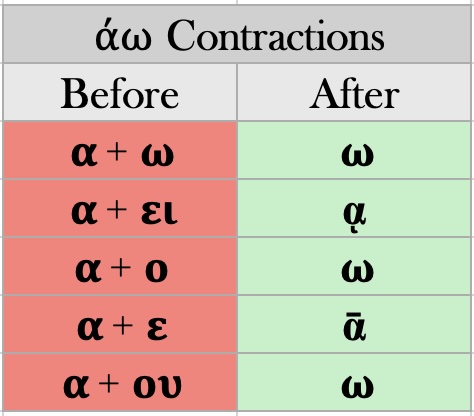17.10 The next most common type of contraction in verbs involves –α. These verbs contract with thematic vowels in a similar fashion to έω verbs, though with some differences:
17.11 The Present Indicative Active of ἐρωτάω, ἐρωτήσω (cf. S 385).
Note that -άεις and -άει contract to -ᾷς and -ᾷ, respectively. This makes sense, for once the α and ε contract to form ᾱ, the ι then must become an iota subscript. That said, the anticipated form of the present infinitive has no iota subscript. For these verbs, Greek speakers dropped the ι of the –ειν infinitive ending before the contraction, giving us the infinitive ending -εν. Note the same process occurs for the present active infinitive of –όω verbs, below.
Charts JPG




